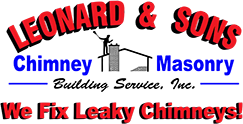Autumn is here and it’s about that time of year when people start using their fireplaces frequently. Wood-burning fireplaces create warmth and enjoyment for your whole family to enjoy. However, before you fire up your fireplace for the first time this year, remember to have your chimney properly inspected and cleaned. Cleaning your chimney flue is important because it can accumulate a dangerous byproduct of your wood called creosote.
What is Creosote?
When wood burns, it releases a mixture of gases. If wood burns at a low enough temperature (less than 1,100 degrees Fahrenheit) not all of these gases will be readily burned. Some of these gases will condense on the inside of your chimney flue, especially if the inside of your flue has not warmed up yet. These condensed gases form a tar-like substance called creosote.
What is so Hazardous About Creosote?
Creosote is highly combustible, which means that it will easily burn once it has caught on fire. Once creosote has caught on fire, it is very difficult to put out. In fact, the National Fire Protection Association (NFPA) estimates that there are over 14,000 creosote related fires a year resulting in an estimated 35 million dollars in damages a year. It only takes about ⅛ to ¼ inch of creosote buildup for a chimney to be considered dangerous.
How can I Prevent Creosote Buildup?
It is impossible to prevent creosote buildup if you’re using a wood burning fireplace or stove. However, there are precautions you can take to reduce the risk of creosote building up.
You should always burn well-seasoned firewood. Dry wood produces less creosote. If available, try to burn more hardwoods than softwoods. Hardwoods tend to burn hotter and produce less creosote.
Improperly insulated chimneys can also increase creosote build up. If your chimney flue is cold, it is more likely to cool gases more quickly and condense. A Chimney Safety Institute of America (CSIA) certified chimney technician would be able to provide guidance on how to properly insulate your chimney.
The most important thing you can do to prevent a creosote fire is to schedule an annual chimney inspection with a CSIA-certified chimney technician. At Leonard and Sons, our chimney experts are CSIA-certified and are trained in creosote removal. If you have questions about creosote buildup the safety of your chimney system, please contact Leonard and Son’s today and have one of our CSIA-trained and certified chimney technicians inspect your chimney system today!
